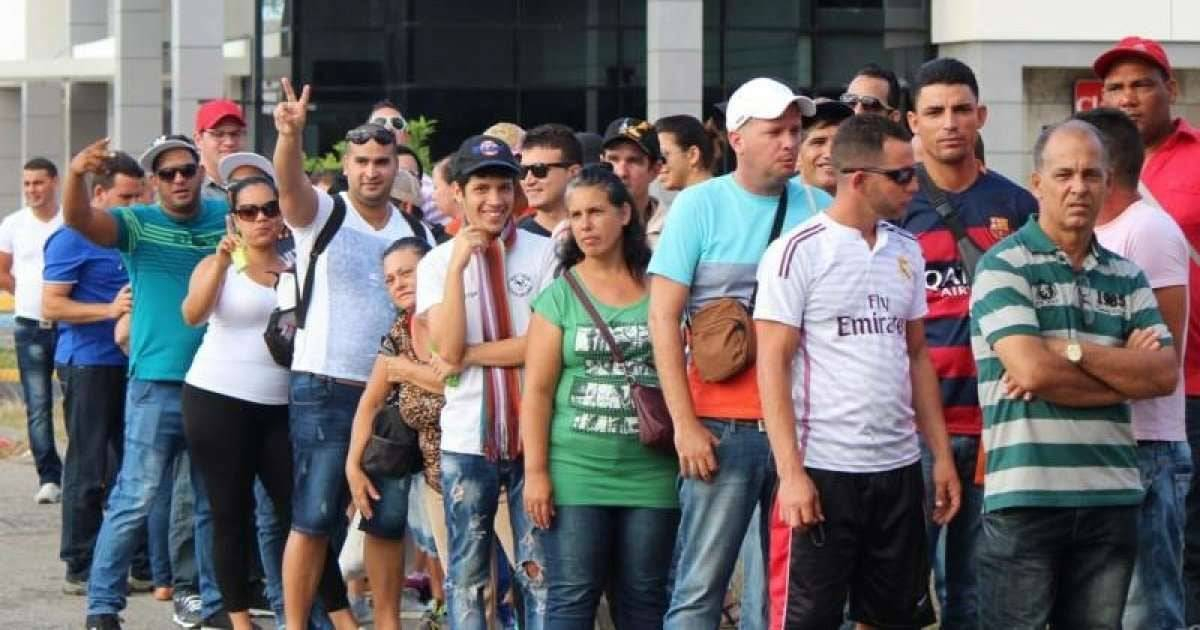
The government of Uruguay signed a decree that will allow thousands of Cubans in that country to resolve their migratory status, a benefit that undocumented individuals have been requesting for months.
After several years demanding actions from the government of Luis Lacalle Pou to be granted residency in the South American country, Cubans and other immigrants of nationalities that require a visa to enter Uruguay will finally be able to obtain legal status.
The regulation was signed by the Ministry of Foreign Affairs and the Ministry of the Interior and will allow undocumented individuals to legalize their status through "residency by ties," a legal mechanism that benefits asylum seekers who did not meet the requirements to be recognized as such.
This measure, published this Thursday, will benefit around 20,000 people who are currently staying irregularly in the country, mostly Cubans, as acknowledged by the government.
It is a groundbreaking step that addresses the situation of thousands of migrants who enter the national territory as asylum seekers, and who remain awaiting a resolution that in most cases is negative for failing to meet the conditions to access that status," the resolution states.
Explain that people who are rejected or resign from the institution of refuge and who, due to their origin, require a visa to enter the country, remain in Uruguay irregularly and without a legal status that allows them to resolve their situation, which also prevents the possibility of family reunification.
However, the decree signed by Lacalle Pou and the ministers Omar Paganini and Nicolás Martinelli provides a legal solution to that situation.
The Residence Permit by Settlement decree provides for three types of residence: for job or self-employment settlement (permanent), family settlement (permanent), and settlement for training (renewable temporary).
Currently, the Refugee Commission (CORE), the body responsible for processing the applications of those entering the country as asylum seekers, has over 24,000 pending applications awaiting a response.
Most of them are Cuban citizens or nationals of other countries who require a visa to enter the country and have complained for years that without regularization they cannot find jobs or schools.
A census published in 2023 confirmed that Cuban migrants represent 20% of the foreign population in Uruguay, and thousands were in a migratory limbo from which they will now be able to emerge thanks to the new decree.
However, last April about 5,000 Cubans were in a "migration limbo", as they did not have refugee status and could not withdraw their refugee application to process the permanent residence that would allow them to reunite with their families.
Cuban organizations in the South American nation sounded the alarm, according to a report by the Spanish newspaper El País.
Lacalle Pou, openly opposed to Latin American populist regimes, stated that Cuban migrants arrive in his country because they have no other choice.